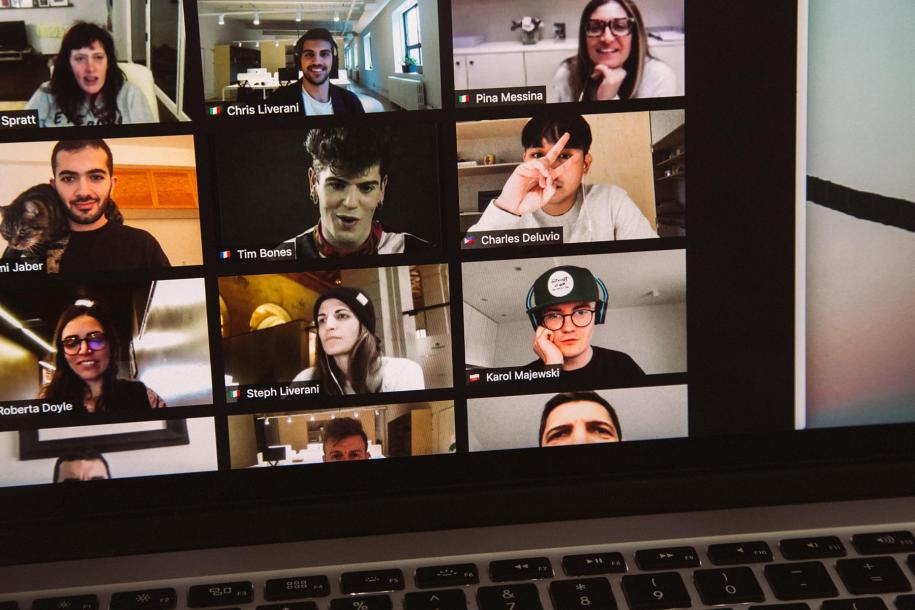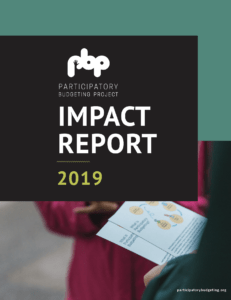Everyday Democracy, an NCDD member org, announced they are hosting a Joy of Voting Youth Video Challenge and submissions are being accepted until Friday, October 23rd. This contest is an opportunity for youth, ages 14-25, to submit a short video on the importance of voting, and which issues being voted on during Election Day, are the most impactful for their communities and our democracy.
Please note, that submissions are limited to residents of Connecticut or those students enrolled at a Connecticut school. Read more about the contest requirements below and find the original posting here.
Everyday Democracy Announces Joy of Voting Youth Video Challenge
![]() The Joy of Voting Youth Video Challenge invites youth and young adults ages 14-25 to submit a video entry between October 1 through noon EST on October 23, 2020 sharing why voting is important.
The Joy of Voting Youth Video Challenge invites youth and young adults ages 14-25 to submit a video entry between October 1 through noon EST on October 23, 2020 sharing why voting is important.
Inspired by Eric Liu’s TED Talk on the importance of voting and his Joy of Voting initiative, the Joy of Voting Youth Video Challenge is an opportunity for youth to engage in civic action through a creative medium—videography! Participants in the challenge are invited to create and submit short (1-2 minutes) videos on how voting connects with issues they care about, their communities, and our democracy. What policies or initiatives could be impacted by their vote on Election Day?
Participants are encouraged to celebrate and promote voting with their peers!
The 1 to 2 minute videos can include interviews, collages and public domain pictures or images, non-copyrighted music, or employ any other creative means in a video format. Some of the criteria for judging the video entries will include: technical quality and presentation, power of the message conveyed, relevance to the upcoming general election, enthusiasm, and creativity. Participants can submit videos in the 14-17 or 18-25 age categories. Participants must complete an entry form prior to submitting their videos.
A panel of independent judges will establish ranking criteria and help select the winning videos. The public, including participants of the challenge, will then be able to vote on their favorite videos from October 26 to October 30, 2020! More information about this will be made available later in October. The winners will be announced on November 2, 2020 right before the election! The top two finalist videos in each age category will receive $150 and $100 cash prizes and have their videos posted online on Everyday Democracy’s Facebook page and YouTube channel!
Steps to Enter
- Create your 1-2 minute video and give it a name.
- Register by visiting: http://www.123formbuilder.com/form-5651380/form
- IMPORTANT: Only submit your application to register once you are finished with your video and are ready to submit!
- Upload your video here: https://filmfreeway.com/TheJoyofVotingYouthVideoChallengeCT
- IMPORTANT: If you are under 18 years of age, you must also submit a parent consent form with your written application.
- Email Zoya Ali at zali@everyday-democracy.org with any questions
Guidelines
Your submission should focus on the importance of voting. Perhaps there is a specific cause, such as environmentalism or police brutality, that you think could be impacted by voting on Election Day. That being said, we want you to have fun and use your creativity! You can shoot your film through whatever technology you have access to, whether it be your phone or a camera. Feel free to use some of these free online programs to edit, including WeVideo, TikTok, Animoto, or GoAnimate to name a few. Just be sure not to fall under the one-minute minimum or exceed the two-minute maximum.
All video submissions must feature original non-copyrighted or public domain content. Videos must contain non-partisan content. This challenge is about the importance of voting, not the specific candidates.
Participants must be either residents of Connecticut or enrolled in a Connecticut school/college.
Where to submit your video:
Please complete your video entry form here: http://www.123formbuilder.com/form-5651380/form. At the bottom of the written application is a link that will take you to the video submission page on Film Freeway where you will send us your video. Make sure that the title of your video is the same on both the entry form and the video. If you are under 18 years of age, you must also submit a parent consent form with your written application.
To give you some ideas and get you thinking about the importance of voting, here are some relevant links to videos, readings, and tools:
- Video from the winner of the Civic Life Project video competition
- “Celebrating a Hero”, Primetime special honoring John Lewis, available on CBS
- “Thirteenth”, Netflix documentary
- Joy of Voting Ted Talk
- How voting works on YouTube
- Who is running for office in Connecticut?
- What’s the scoop on Absentee Ballots?
You can find the original version on this on the EvDem’s site at www.everyday-democracy.org/news/everyday-democracy-announces-joy-voting-youth-video-challenge.

 Beyond Civility: The Competing Obligations of Citizenship
Beyond Civility: The Competing Obligations of Citizenship The National Issues Forums Institute (NIFI) is now accepting applications for the Elizabeth “Libby” Kingseed Teaching with Deliberation Memorial Award at this time. A fund established to commemorate and in memory of Libby Kingseed.
The National Issues Forums Institute (NIFI) is now accepting applications for the Elizabeth “Libby” Kingseed Teaching with Deliberation Memorial Award at this time. A fund established to commemorate and in memory of Libby Kingseed. Libby Kingseed was a program officer, and archivist at the Kettering Foundation. Libby was a passionate leader of the foundation’s K-12 civic education research. She worked closely with teachers using National Issues Forums in the classroom. Libby recognized the need for civic education to be included in the education of children in order to help them understand how to be active, engaged citizens in the future.
Libby Kingseed was a program officer, and archivist at the Kettering Foundation. Libby was a passionate leader of the foundation’s K-12 civic education research. She worked closely with teachers using National Issues Forums in the classroom. Libby recognized the need for civic education to be included in the education of children in order to help them understand how to be active, engaged citizens in the future. For the seventh time since 2013, the Online Facilitation Unconference (OFU) will take place this October 19-25, once again alongside and as part of IAF’s International Facilitation Week.
For the seventh time since 2013, the Online Facilitation Unconference (OFU) will take place this October 19-25, once again alongside and as part of IAF’s International Facilitation Week. The Bridge Alliance and Bridge Alliance Education Fund are excited to announce the addition of Reverend F. Willis Johnson to its leadership team as Vice President of Partnerships and Programming. He rose to national prominence for his role in healing the Ferguson, MO community after the death of Michael Brown.
The Bridge Alliance and Bridge Alliance Education Fund are excited to announce the addition of Reverend F. Willis Johnson to its leadership team as Vice President of Partnerships and Programming. He rose to national prominence for his role in healing the Ferguson, MO community after the death of Michael Brown.

 “We cannot simply retrofit our in-person reality to the online space. But we can stay grounded in our shared purpose, and design accordingly.”
“We cannot simply retrofit our in-person reality to the online space. But we can stay grounded in our shared purpose, and design accordingly.” We designed a new exercise to use collective reflection as a way to observe this moment of dynamism and change more deeply and clearly. We invited the participants to reflect on the negative patterns exacerbated by the transition to virtual spaces, as well as the patterns that are serving their community well in this stressful moment.
We designed a new exercise to use collective reflection as a way to observe this moment of dynamism and change more deeply and clearly. We invited the participants to reflect on the negative patterns exacerbated by the transition to virtual spaces, as well as the patterns that are serving their community well in this stressful moment.

 2019 marked a monumental year for PBP. Our organization turned 10 years old, helped launch or continue over 170 PB processes, and successfully transitioned our leadership to a national Black-led organization committed to equity.
2019 marked a monumental year for PBP. Our organization turned 10 years old, helped launch or continue over 170 PB processes, and successfully transitioned our leadership to a national Black-led organization committed to equity.